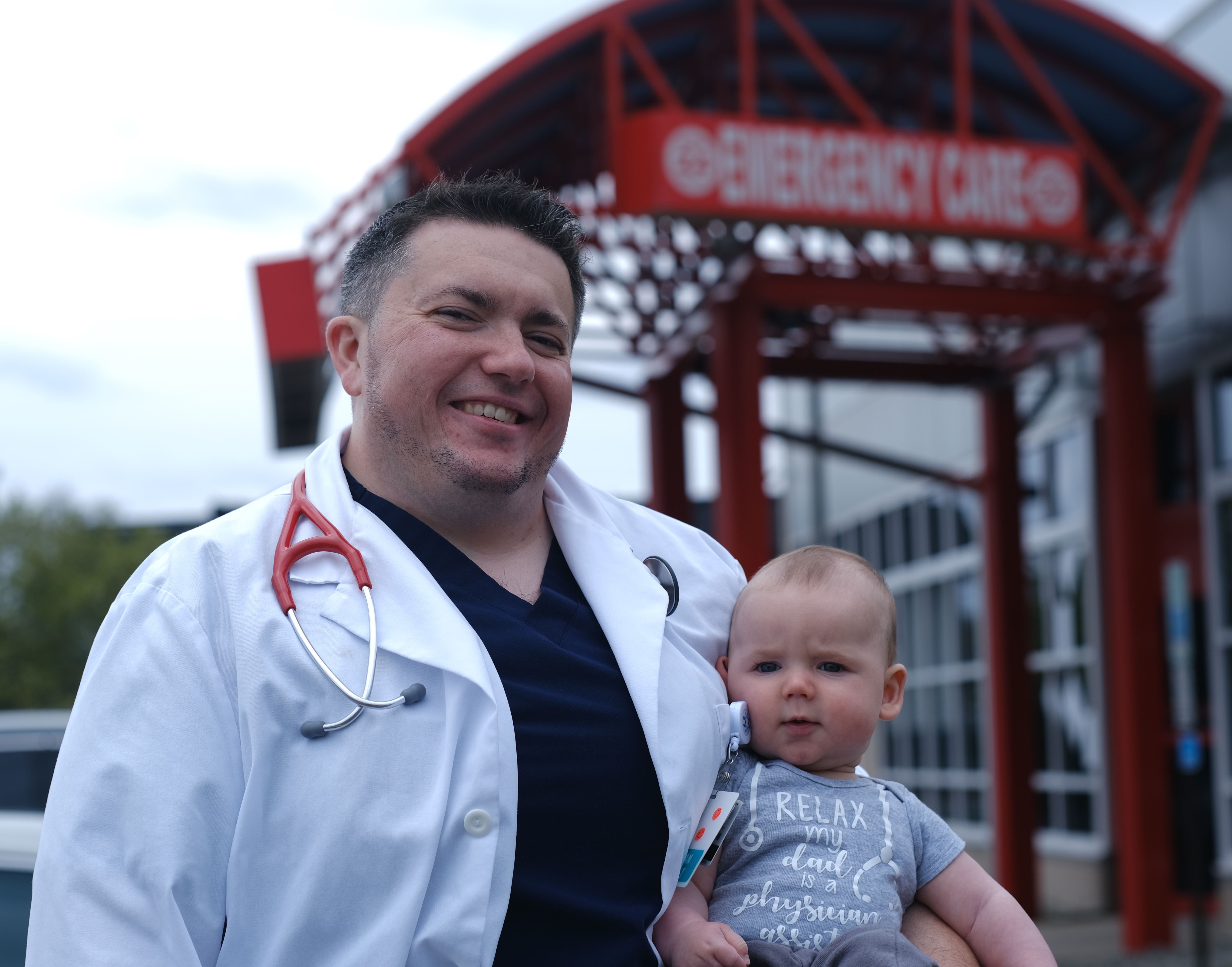Preceptor Spotlight: Anthony Burdo
April 26, 2024
 Why did you become a preceptor / why should someone become a preceptor?
Why did you become a preceptor / why should someone become a preceptor?
I have always had a passion for education, and I wanted to somehow incorporate that into my career as a PA. Thinking back to didactic year of PA school, one of my learning methods was to try and get comfortable enough with the material to teach it to others. I still take that approach with my own professional development and to educating students in my field now. It is gratifying to engage a student in an interesting case and watch them become fully invested in the hands-on care as well as the clinical reasoning behind it. Precepting reinforces the academics and evidence basis behind my practice but also helps keep me up to date on topics that might not be in my everyday lens.
The broader impact of becoming a mentor is profound. As preceptors, we have the opportunity to leave a lasting legacy for the next generation of providers who may one day be caring for us or our loved ones. If my students remember even just a few clinical pearls, the ripple effect on future patient outcomes could be significant. A preceptor can literally make a world of difference in a student’s skillset, foundation of knowledge, confidence and even the trajectory of their career.
Why is it especially important to become a preceptor now?
Now more than ever, preceptors are needed to help students navigate the way health care is practiced today. In the current climate, there are some discrepancies between the way medicine is taught and the way it is often practiced. Practitioner burnout, existing institutional culture, insurance barriers, technology barriers and clinician fear of medical-legal retribution might all influence the way providers practice. However, guided by experienced mentors, students can learn to overcome or avoid these obstacles and effectively incorporate evidence-based medicine into their own patient-centered, safe style of practice. There are just simply not enough preceptors out there to meet the ever growing demand.
How did your preceptor change your life?
As a PA student entering the emergency department for the first time, I anticipated the rotation might be overwhelming and intimidating. However, my emergency medicine preceptor, Donn Hoosack, PA-C, exhibited a cool, calm and organized style of practice that really resonated with me. Donn’s style of precepting motivated me to perform to the best of my ability, instilled confidence and allowed me to feel like my input mattered. I still find it inspiring how my preceptor totally changed my perception of the emergency medicine specialty. After PA school, Donn graciously recommended me for a position on his team at Ocean University Medical Center. After ten years of working together, he has certainly influenced my own precepting style. I’m still learning from Donn and passing that knowledge and experience on to my own students.
哈